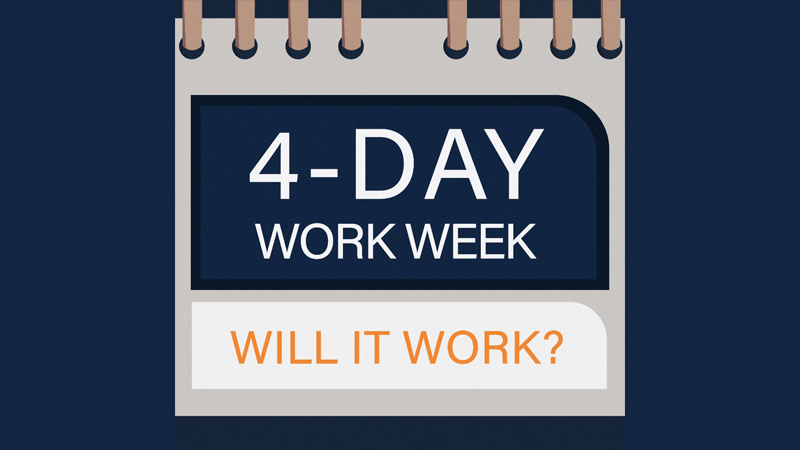With workers and employers rethinking the importance of workplace flexibility and benefits, the four-day workweek has been the highlight of discussions globally this year.
Hailed as the future of employee producnd work-life balance, advocates for the four-day workweek suggest that when implemented, worker satisfaction increases, and so does productivity.
The idea is simple – employees would work four days a week while getting paid the same and earning the same benefits, but with the same workload. Companies reducing their workweek would therefore operate with fewer meetings and more independent work.
This follows encouraging data from a pilot program where more than 3,300 employees in the United Kingdom get one paid day off each week.
In a survey, 88 percent said the four-day week is working well for their business, with just under half of respondents rating their productivity at “around the same level.
Managers said the four-day week had given employees more time to exercise, cook, spend time with their families and take up hobbies, boosting their well-being and making them more energised and productive.
However, not everyone feels the same.
At one end of the spectrum is Alibaba’s Chairman Jack Ma who says companies must adopt an even shorter workweek of only 12 hours/week because of the rise of Al. While at the other, is Tesla’s Elon Musk, who believes employees must devote roughly 80 hours per week to create an impact.
Those against the 4 day workweek believe that full-time employees will be working very long days if they choose to condense their hours, and others, such as shift workers, will simply not have the option of that flexibility.
Those monitoring the trial say they fear that the longer stretches of meetings on those four days could cause burnout and dissatisfaction.
Even in countries like Germany, which enjoy one of the shortest average working weeks in Europe, there are calls for further reduction in hours, with unions arguing it would help retain jobs and avoid layoffs.
According to the World Economic Forum (WEF), the average working week is 34.2 hours.
As dreams of a three-day weekend come close to becoming a reality, the sceptics are asking if this is all part of a post pandemic wave that everyone wants to ride or is this a trend that’s here to stay.
Let us know what you think. Do you believe the four-day workweek is a good idea? Would you consider a trial run for your organisation? If not, why?
#fourdayworkweek; #threedayweekend; #productivity; #worklifebalance; #business #businessconsultancy; #npconnect; #germany; #businessingermany

